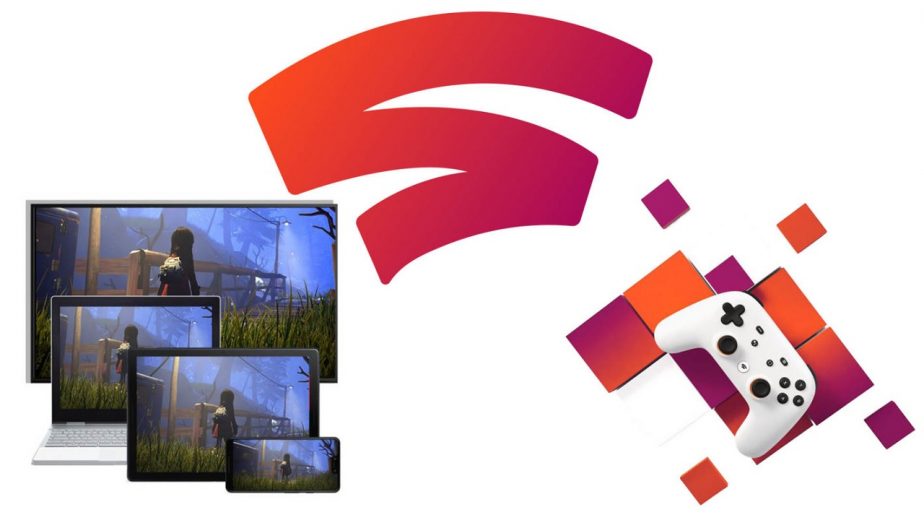The gaming industry is continuously changing, and this is unlikely to change anytime soon. From the earliest Game & Watch handheld games to the viral success of today’s open-world online games, the industry is always reinventing itself. These days, technology, trends, and video game experiences come up and fade away so frequently that it’s hard to tell what will stand the test of time. Looking ahead to 2020, here’s some of the key trends to watch in the gaming industry.
#1: Cross-Platform Gaming
As gaming publishers compete to expand their markets on all platforms, one thing has become clear; the easiest way to expand your potential audience is to create games which can be played on a wide range of devices. Looking ahead, gamers may focus less on which devices they own and more on which games they play and with whom. Players who enjoy playing with friends won’t need to make sure that they own the same gaming platform, be it PlayStation, Xbox, or PC, etc.

Indeed, this is already starting to happen, after years of Sony stymying efforts to introduce cross-play. Because gamers can now connect via the Internet rather than exclusively through their gaming devices, Xbox players will compete fairly with their PS4 counterparts. Even iOS and Android device owners will be able to play the same games. It’s worth noting here that input methods may become more important in this area, as competitive multiplayer titles like Call of Duty: Modern Warfare matchmake players by whether they are using a controller or keyboard and mouse, rather than by platform.
#2: Games Inclusive to All
66% of online gamers want a world where games appeal to players of different genders, ethnicities, and social capacities. Indeed, one study found that 56% of gamers think that developers should actively make their games more inclusive towards diverse audiences, while 45% would be more likely to play such games (with only 7% saying that they would be less likely). They also favor developers that experiment with new themes and varying storylines. If these preferences are put to use, the future of gaming will be one where everyone connects to a specific game on a personal level. Games with visual challenges, for example, could play games custom-made for playing with Braille devices.

Hearing-impaired gamers will also have games that don’t necessarily rely on sound effects for entertainment. At the same time, expect more games that shift away from violence and tap on the idea of games as tools of self-expression. Of course, achieving inclusivity in video games won’t happen overnight. It will also be driven by intensive research to achieve crucial milestones; i.e., the ability to play games using your eyes only.
#3: Immersive Online Casino Games
Various innovations are changing how people interact with online casino games. Instead of playing the same fruit slots over and over, developers are tapping into technology to make online gambling more immersive. Think of VR slots, live dealers, 3D games, and how they can transform regular games to action-packed social experiences. With VR headsets, the world around you ceases to exist for a moment and you become immersed in an environment that mimics a real-life casino.

Live dealers, on the other hand, put aside AI and instead let you play blackjack, poker, or roulette against real human players. You don’t need an expensive laptop or pay subscriptions for the service. All you need is a working computer or phone with a web camera. As the gaming industry changes, the casino industry will continue to find new ways to attract players. The best paying online slots could be remade to feature 4K video resolutions, more paylines, and more intriguing storylines.
#4: Cloud Gaming
Perhaps no gaming trend promises to bring as significant a change as cloud gaming. Although it’s not a new concept per se, few developers began looking at gaming via streaming platforms until the last couple of years. Now that online gaming is the predominant format, Google and other major gaming brands are looking for new ways to deliver gaming through cloud solutions. Google, of course, launched their Stadia project earlier this month. Microsoft’s XCloud, which offers a slightly different sort of cloud gaming service, also launched in October.

By mid-next year, gamers could have several stable gaming platforms that don’t cost an arm and a leg in subscriptions. And with the capabilities, cloud gaming is posed to have; you won’t need a gaming PC or an expensive console in the future. However, with the impending launch of the PS5 and Xbox Project Scarlett in late 2020, it remains to be seen whether gamers will be lured away from traditional console gaming by cloud options like Stadia. Certainly, Stadia’s reception since launch has been decidedly mixed.
#5: 5G Mobile Gaming
After years of uncertainty over its capabilities, 5G is a reality, and it’s proving to be a vital component of the future of mobile gaming. Thus far, China is the biggest beneficiary of 5G, although the US, the UK, and a few more countries have also gotten a taste of the technology. At its core, 5G promises ten times more speed than 4G. That means if 4G could handle 400Mbps, 5G can support 4GBps. 5G also addresses the ever-recurring problem of lagging in video games, promising to bring it to an end.

If 5G becomes a reality for everyone, we are looking at a future where streaming online mobile games in 4K could theoretically be accessible to all. Buffering and latency, the real enemies of online gamers, could also be obliterated. Of course, 5G is presently limited to mobile gaming. So, if you want to experience all of its benefits, find a decent mobile device.
#6: Big Data’s Influence on Games
The gaming industry generates more revenues than the movie industry by a long shot. And that’s just counting the US alone. Around the world, more than two billion people play online games regularly, creating a vast amount of data that can help shape the future of gaming. Developers are increasingly becoming reliant on data from their players to determine how to develop the next generation of games. For example, studios like Respawn and Infinity Ward track firearm performance rates to gauge the balance of games like Battlefield 5 and Call of Duty: Modern Warfare. They also research what elements are unpopular and what features players prefer the most in their games. This is likely to become an ever more important part of game development in 2020.
#7: VR and AR
VR and AR are finally emerging on reliable hardware in the gaming market, and while they remain in a niche for now, games like Half-Life: Alyx could convince more gamers to try out VR in 2020. Statistically, researchers expect VR to rise into a market worth $215 billion by 2021, making it one of the fastest-growing industries. But, is enough interest in VR and AR actually there among the gaming audience? Research shows it will take time before VR becomes a truly ubiquitous component of the industry.

That’s not because players don’t want a taste of the immersive experience provided by VR. Instead, it’s the expensive nature of VR equipment that prohibits the technology’s growth. However, as time passes, and the technology develops, the price of VR headsets is likely to become more affordable.
#8: The Rise of Indie Games
These days, some of the best online games come from developers who aren’t from major development studios or publishers. Think of Minecraft, Hotline Miami, or Stardew Valley. These games rose out of obscurity only to become some of the most popular titles on the market. (Particularly on PC and mobile.)

In the mobile gaming scene, indie developers make up more than 70% of all games published on both the App Store and Google Play Store. That’s a testament to how popular indie developers have become and how large a role they play in the gaming industry. Although their games don’t always command revenues like that of triple-A development studios, indie developers do keep competition healthy. And with stiff competition comes more research and improved efforts to create better games.
#9: Single-Player Narrative Games
While multiplayer online games have been a predominant force in gaming for years, story-driven, single-player games are making a major comeback. Beginning perhaps with the launch of God of War in 2018, the commercial success of which demonstrated to publishers that such games had a large market, other single-player titles have since been released to widespread acclaim. These include Marvel’s Spider-Man, Red Dead Redemption 2, The Outer Worlds, and more.

Looking ahead to 2020, it seems likely that this trend will continue. Cyberpunk 2077 could easily be the largest release of the year and will firmly fall into this category. This doesn’t mean that online multiplayer games will diminish at all. Rather, expect to see greater emphasis in games on well-written narrative experiences for solo or cooperative play.
#10: Social Gaming
Social media has increasingly blurred the lines between social experiences and gaming, especially on mobile. However, in recent years this has also moved into other areas. “Just Chatting,” for example, is one of the most-watched forms of content on Twitch; a trend which has emerged as more and more people move into a platform which had previously been used almost exclusively for gaming. In 2020, with more functionality afforded to gaming platforms, expect this trend to continue. This also means more social integration in gaming, whether that be through matchmaking or connecting accounts to social media platforms to help players post content.

Twitch integration is also an area which may see more and more development in 2020. Borderlands 3 recently launched with the ECHOcast Twitch extension, the most significant streaming extension ever developed for a triple-A game. If other developers follow suit, streaming integration could become much more commonplace.




